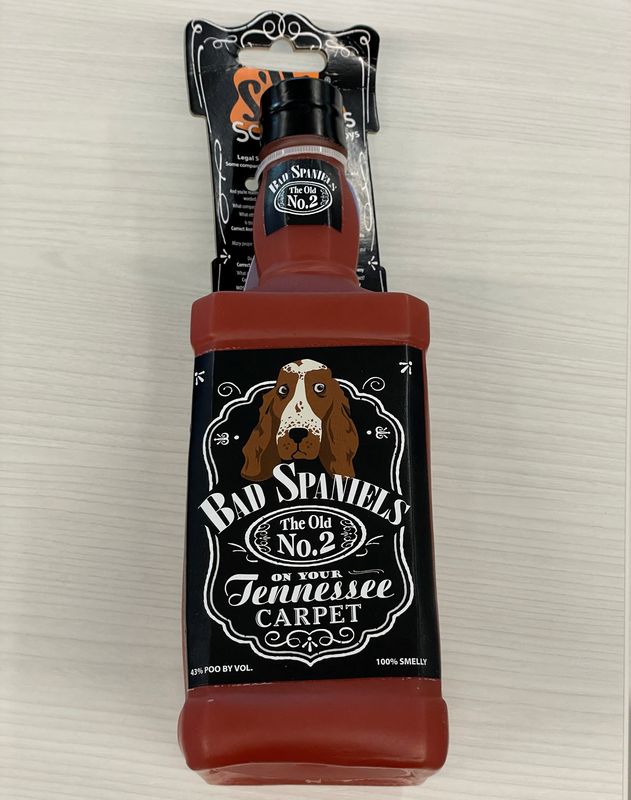By Blake Brittain
(Reuters) - The U.S. Supreme Court handed brand owners a win against parody products on Thursday when it ruled that "Bad Spaniels" dog toys resembling Jack Daniel's whiskey bottles are not shielded by the U.S. Constitution from the liquor maker's trademark lawsuit.
The decision is likely to force companies to toe a more careful line when making commercial products that mimic other brands for the sake of parody, legal experts said.
VIP Products had argued that the First Amendment protected its toys' poop-themed variations on Jack Daniel's famous label and bottle design, which it described as commentary on alcohol brands' "self-serious bombardment of consumers with advertising" and dog owners' "joyful humanization of their pets."
But in a 9-0 decision, the justices said a precedent known as the Rogers (NYSE:ROG) test for assessing the use of trademarks in artistic expression did not apply to VIP's products, reversing a U.S. appeals court and raising the bar for parodies to survive trademark claims.
The Rogers test is "not appropriate when the accused infringer has used a trademark to designate the source of its own goods - in other words, has used a trademark as a trademark," Justice Elena Kagan wrote.
Kagan contrasted the case with situations where she said applying the Rogers test was justified, including when Danish pop group Aqua's label MCA Records defeated a trademark lawsuit by Mattel (NASDAQ:MAT) over the band's song "Barbie Girl."
"On the one hand, this is a victory for artists," said Megan Bannigan, a partner at Debevoise & Plimpton. Bannigan said the decision is "also a victory for brands" because it clarifies that the Rogers test does not apply when branding is being used as a typical trademark to identify a source of goods without permission.
VIP had conceded that it used "Bad Spaniels" as a trademark. But the high court provided little guidance on where to draw the line between a trademark use and a non-trademark use that could be subject to the Rogers test, Bannigan said.
Doug Masters, a partner at Loeb & Loeb, said the decision suggested parody products accused of infringement may not be able to rely on the Rogers test if they are "intended to be a commercial product, even if there's some expression beyond just the commerce part of it."
Masters said the decision could force companies that want to engage in parodies to ink licensing deals or find ways "to be more creative" and less similar to the brands they reference.
Other experts said the decision leaves space for the First Amendment to apply to parody products.
Alexandra Roberts, a law professor at Northeastern University, cited a "Chick-Fil-Hate" t-shirt as an example of a parody product that could still receive First Amendment protection because it conveys a message about Chick-fil-A and does not use "Chick-Fil-Hate" as a trademark.
The shirt refers to fast-food restaurant Chick-fil-A's past donations to Christian groups that opposed same-sex marriage.
"If Chik-Fil-Hate were also on the inside of the shirt on the tag, that would be more of a trademark use," Roberts said.
Elizabeth Brannen, a partner at Stris & Maher, said Jack Daniel's victory "could turn out to be pyrrhic." The whiskey maker will still have to prove VIP's toys are likely to confuse potential customers into thinking it was affiliated with them in order to win its infringement case.

"The likelihood of confusion analysis will still take the challenged product's funny message into account," Brannen said. She noted that the high court said consumers are "not so likely to think that the maker of a mocked product is itself doing the mocking."
(This story has been refiled to change dateline to June 12)